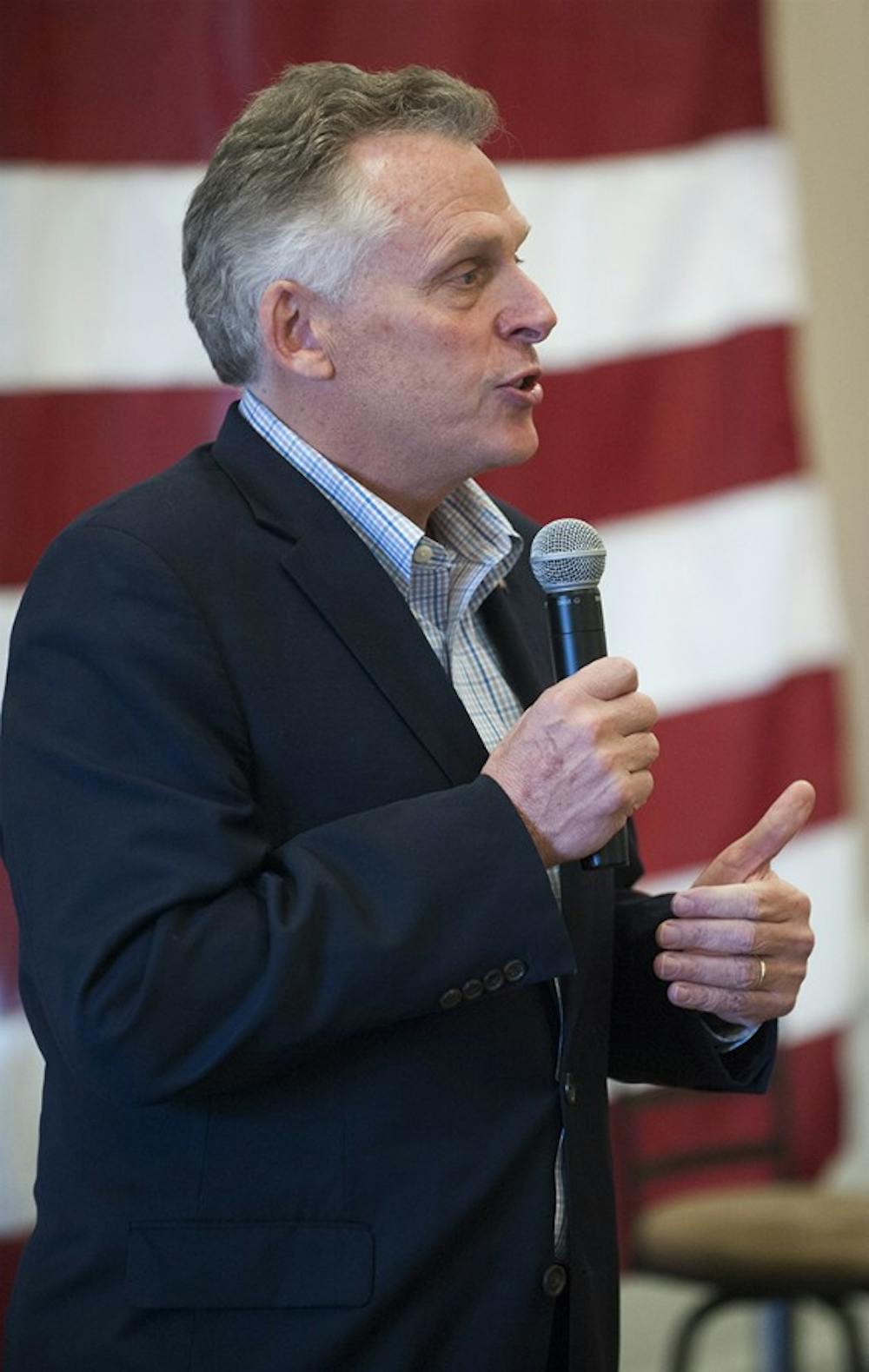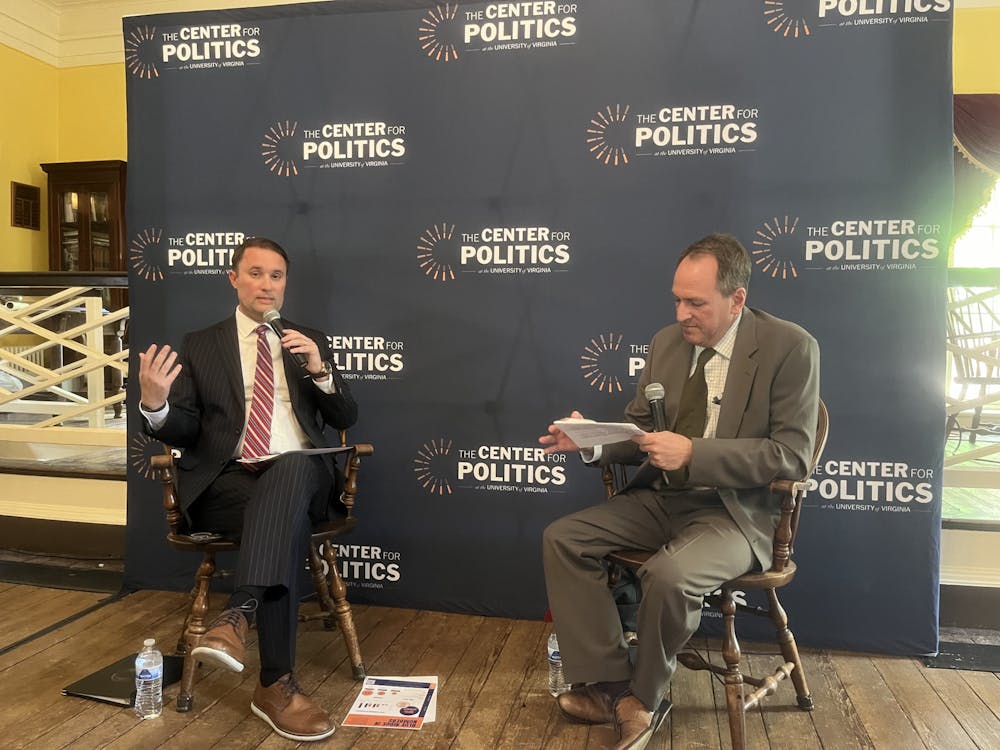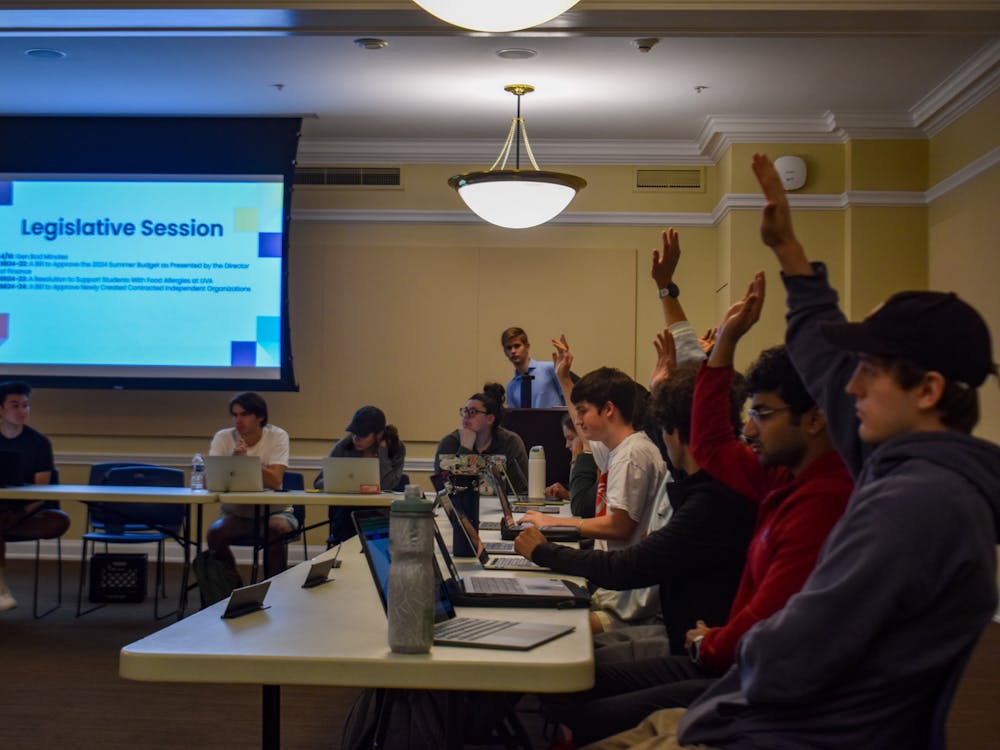Gov. Terry McAuliffe signed an executive order April 22 restoring voting rights to more than 200,000 convicted felons in Virginia.
The order allows felons who have finished their prison sentences, along with parole or probation time, to register to vote the same way citizens who have never been convicted of a crime do.
The timing of the executive order has been very controversial between Democrats and Republicans.
Sullivan and Cromwell Professor of Law Michael Gilbert said while he personally supports the move, he can understand why other people are opposed to it, as they are perceiving it to be primarily a political move.
“The presumption, which I suspect is right, but I don’t know of any concrete evidence on this, is that people who have had their voting rights returned to them will tend to vote for Democrats in Virginia, which means they could make a difference in November,” Gilbert said. “I’m sympathetic to that in the sense that I think it’s partially true.”
Gilbert said another reason why people oppose the executive order is because they find the restriction of voting rights to be an appropriate punishment for any felony.
“The other piece of it is that some people really believe that if you commit a crime, not only do you owe your time to society but you have broken society’s rules, and you lose your right to participate in society’s decisions afterwards,” Gilbert said. “I don’t think it’s crazy that reasonable people could take that position.”
However, Gilbert said he personally has a hard time finding a justification for tying one’s right to vote to a criminal record.
“It’s not obvious to me why one’s voting rights should be attached to that, because when we’re talking about people’s crimes, although serious, their criminality is subject to one’s opinion,” Gilbert said. “So here I’m thinking of drug crimes. Everyone agrees that if you kill somebody you should go to prison, but what if you commit a drug crime?”
A drug crime along with grand larceny — a theft of something over $500 in value — fall into a category of non-serious crimes, as generally non-serious crimes are those with no violence involved. Second-year Law student Allison Thornton and Law Prof. Deirdre Enright recently reached out to a client who, as a former felon, was seeking a pardon.
“The first step in getting a pardon is the restoration of rights,” Thornton said. “So we were supposed to submit the application online, and at that point you just wait for a response from the secretary of the Commonwealth, but I guess fortunately the governor made his executive order last week so we are no longer waiting, and his rights were automatically restored.”
The wait time to apply for a restoration of rights for offenders of serious crimes is five years, whereas the wait time for non-serious crime offenders is two years.
“I think it is a BandAid solution and a statement to the legislature that they need to get something more progressive passed because the wait times as is are too strict, and it’s not good for people who are disenfranchised and are willing and capable to contribute to the electoral process,” Thornton said.
Enright said the only thing that could make sense to restrict voter rights is if someone had committed voter fraud.
“If we truly believe that [by serving a sentence] you’ve paid your dues to society, then we should welcome you back once you’ve done that,” Enright said.
Enright said she thought the governor’s order was a shocking move, especially since it came right in the middle of his term, and believed McAuliffe finished the work former Gov. Bob McDonnell had started.
“I know he must have been aware that he would be accused of doing this for [former Secretary of State] Hillary Clinton, and he also did it in the middle of his term, not at the end like some governors do just as they’re leaving,” Enright said. “I was really surprised and impressed.”
The executive order only covers felons who finished their probation or parole on or before April 22. Those who finish their sentencing afterwards will be subject to different rules.





